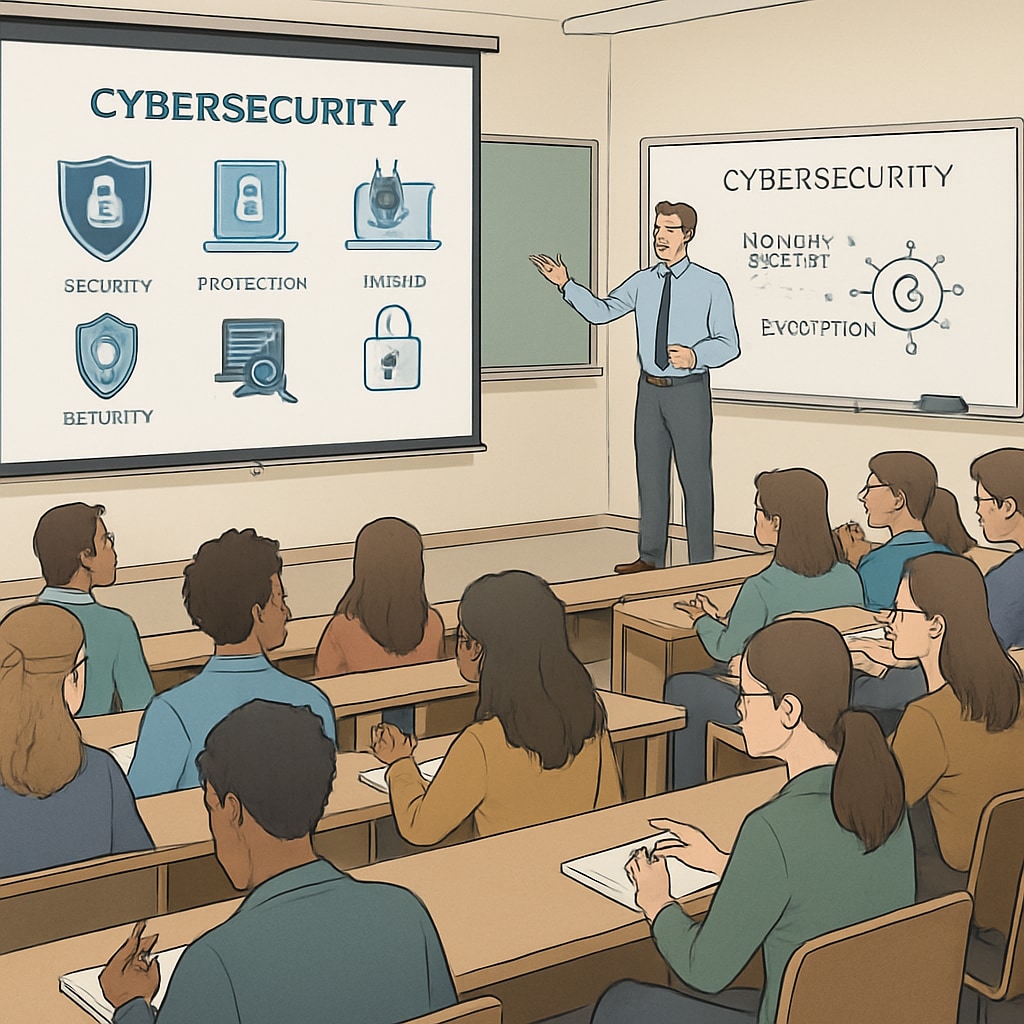In today’s rapidly evolving digital world, university reputation plays a crucial role in network security employment opportunities. Employers often prioritize graduates from prestigious institutions, not just for their academic qualifications but also for the robust networks and resources these universities provide. However, the foundation of a successful career in cybersecurity begins much earlier, during the K12 education years. Early exposure to cybersecurity concepts can shape a student’s understanding of digital safety and prepare them for higher education and employment in this critical field.

Building the Foundation: The Importance of K12 Cybersecurity Education
Cybersecurity education during K12 is essential for equipping students with the basic knowledge and skills needed to navigate the digital landscape. At this stage, students can learn about online safety, recognizing phishing attempts, and understanding the importance of strong passwords. These lessons not only protect them in their daily lives but also spark interest in cybersecurity as a career path.
Moreover, introducing cybersecurity concepts early can help bridge the skills gap in the industry. According to Britannica’s overview of cybersecurity, the demand for skilled professionals far exceeds the current supply. By incorporating these topics into elementary and high school curriculums, educators can inspire future generations to pursue careers in this field.
University Reputation and Its Impact on Career Opportunities
When it comes to higher education, the reputation of a university can significantly impact a graduate’s employability in network security roles. Universities with strong cybersecurity programs often have partnerships with leading tech companies, offer state-of-the-art facilities, and employ renowned professors. These factors contribute to students receiving high-quality education and gaining access to invaluable professional networks.
Additionally, some universities host cybersecurity competitions and hackathons, providing students with hands-on experience and opportunities to showcase their skills to potential employers. For example, the National Collegiate Cyber Defense Competition (NCCDC), as highlighted on Wikipedia, is a platform where students from top institutions compete and attract attention from industry leaders.

How Early Education Shapes Future Careers
Early exposure to cybersecurity concepts not only builds foundational knowledge but also influences the type of universities students aspire to attend. For instance, a student who has developed strong problem-solving skills through K12 cybersecurity programs is more likely to excel in competitive university admissions processes.
Furthermore, by fostering an interest in cybersecurity early on, educators can help students identify the best universities that align with their career goals. Prestigious institutions often have a reputation for producing industry-ready graduates, which increases their employability. As a result, the combination of early education and attending a reputable university creates a strong path toward success in network security careers.
Readability guidance: This article emphasizes short paragraphs, logical transitions, and actionable insights. Lists and examples are used to enhance clarity, and long sentences and passive voice are minimized.


